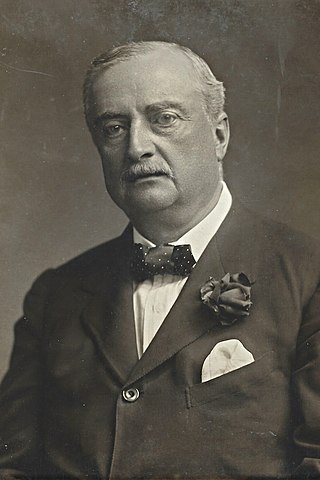
North Antrim is a parliamentary constituency in the United Kingdom House of Commons. The current MP is Ian Paisley Jr of the DUP.

North Down is a parliamentary constituency in the United Kingdom House of Commons. The current MP is Stephen Farry of the Alliance Party. Farry was elected to the position in the 2019 general election, replacing the incumbent Sylvia Hermon. Hermon had held the position since being elected to it in the 2001 general election, but chose not to contest in 2019.
Armagh or County Armagh was a parliamentary constituency in the House of Commons. It was replaced in boundary changes in 1983.
County Antrim is a former UK Parliament constituency in Ireland. It was a two-member constituency and existed in two periods, 1801–1885 and 1922–1950.
Dundalk was a parliamentary borough constituency in Ireland, which returned one Member of Parliament (MP) to the House of Commons of the Parliament of the United Kingdom. It was an original constituency represented in Parliament when the Union of Great Britain and Ireland took effect on 1 January 1801, replacing the Dundalk constituency in the Parliament of Ireland.
Waterford City was a United Kingdom parliamentary constituency, in southeast Ireland.
East Tipperary was a UK Parliament constituency in Ireland, returning one Member of Parliament from 1885 to 1922. Prior to the 1885 general election the area was part of the Tipperary. From 1922, on the establishment of the Irish Free State, it was not represented in the UK Parliament.
North Kilkenny was a parliamentary constituency in Ireland, represented in the House of Commons of the Parliament of the United Kingdom. It returned one Member of Parliament (MP) from 1885 to 1922.
South Kildare was a UK Parliament constituency in Ireland, returning one Member of Parliament from 1885 to 1922.
South Donegal was a UK Parliament constituency in Ireland, returning one Member of Parliament 1885–1922.

The Irish component of the December 1910 United Kingdom general election took place between 3 and 19 December, concurrently with the polls in Great Britain. Though the national result was a deadlock between the Conservatives and the Liberals, the result in Ireland was, as was the trend by now, a large victory for the Irish Parliamentary Party. The IPP supported the Liberals to form a government after the election. This was to be the party's last victory, however. Due to the outbreak of World War I in 1914, the next general election would not be held until 1918, by which time events both in Ireland and Britain and outside would conspire to see the rise of a new nationalist party, Sinn Féin, and the subsequent demise of the IPP.

The 1892 general election in Ireland took place from 4–26 July 1892. This was the first general election in Ireland following the split in the Irish Parliamentary Party caused by Charles Stewart Parnell's relationship with Katharine O'Shea, who had been married at the beginning of their relationship. The ensuing scandal saw the Party split into rival wings; the anti-Parnellite Irish National Federation, and the pro-Parnellite Irish National League. Parnell later died in October 1891 of a heart attack.
The 1906 North Galway by-election was held on 28 February after the MP elected in the general election in January 1906, Thomas Higgins, died before his election declaration at the 1906 general election.
The February 1902 South Down by-election was held on 19 February 1902. The by-election was held following the resignation of the previous member Michael McCartan who was a member of the Irish Parliamentary Party. It was won unopposed by the Irish Parliamentary Party candidate Jeremiah McVeagh.

The 1900 United Kingdom general election in Ireland was held in September and October 1900. Ninety-nine of the seats were in single-member districts using the first-past-the-post electoral system, and the constituencies of Cork City and Dublin University were two-member districts using block voting.

The 1906 United Kingdom general election in Ireland was held in January 1906. Ninety-nine of the seats were in single-member districts using the first-past-the-post electoral system, and the constituencies of Cork City and Dublin University were two-member districts using block voting.






